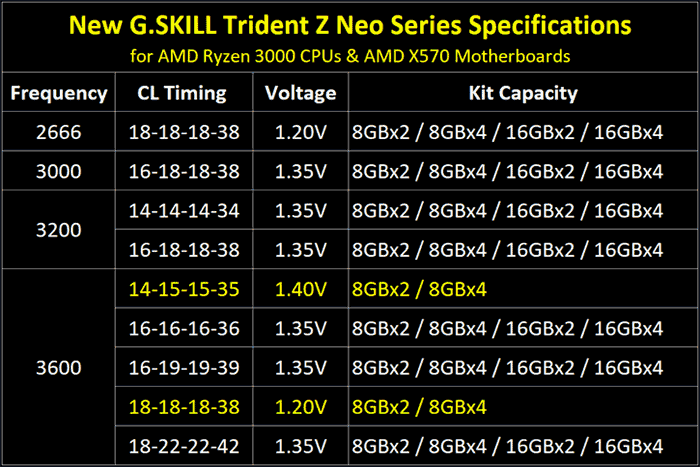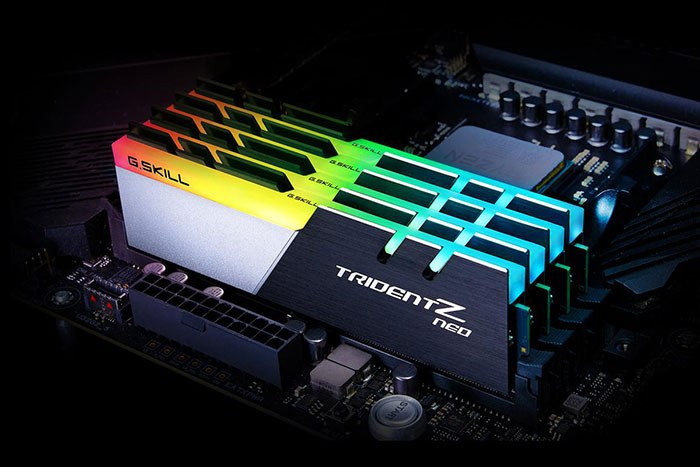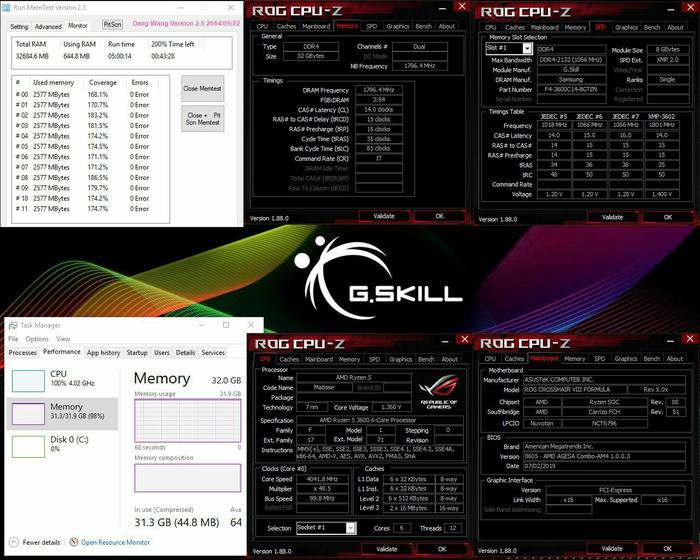Performance PC memory specialist G.Skill has launched a range of memory modules specifically for users of the new AMD Ryzen 3000 desktop CPUs and X570 motherboards. A full range of the new G.Skill Trident Z Neo Series DDR4 RAM kits will be made available in capacities ranging from 16GB (2x 8GB) to 64GB (4x 16GB). Kit speeds vary from 2666MHz, through 3000 and 32000MHz options to 3600MHz.
As DDR4 memory frequency support has "increased by leaps and bounds" with the arrival of the new processors and motherboards, G.Skill thought it appropriate to engineer the Trident Z Neo "to achieve optimal performance with the latest AMD Ryzen 3000 series processors on AMD X570 motherboards". You can read more about the importance of fast memory to this platform in the HEXUS review of the AMD Ryzen 9 3900X and Ryzen 7 3700X processors.

On the topic of performance, there are a wide selection of kits being put together for AMD enthusiasts, as can be referenced in the table above. G.Skill's Trident Z Neo DDR4 will be available in capacities from 16, to 32, to 64GB and in the various frequencies shown. You can see G.Skill has chosen to highlight two if its 3600MHz kits; one in 16 and 32GB capacities with 14-15-15-35 CL timings at 1.40V, and another in the same capacity options but with 18-18-18-38 CL timings at 1.20V. G.Skill says it has achieved this performance using hand-screened high performance ICs and custom 10-layer PCBs.

As well as offering great performance, the new G.Skill Trident Z Neo modules look rather appealing. The designer has used contrasting black brushed aluminium and powder-coated silver for the heatspreader design, plus an asymmetric division between the two tones. Atop of the modules you see six angled fins and between these you will see the smooth 8-zone RGB lighting rod. These RGB LEDs are fully customisable and controllable using the Trident Z lighting control software, which already supports the Trident Z RGB and Trident Z Royal series. Alternatively you can add these modules to your Asus Aura Sync, Gigabyte RGB Fusion, MSI Mystic Light, and ASRock Polychrome setup to simplify/sync overall system lighting.
click to zoom image
Above you can see a screenshot taken after a 5-hour stress test featuring a Trident Z Neo 32GB (8GBx4) memory kit running at DDR4-3600 CL14-15-15-35 on the ASUS ROG Crosshair VIII Formula motherboard (AMD X570 chipset).
G.Skill is yet to announce availability and pricing of its Trident Z Neo DDR4 RAM kits. However, the kits should start to become available later this month via the usual channels.







